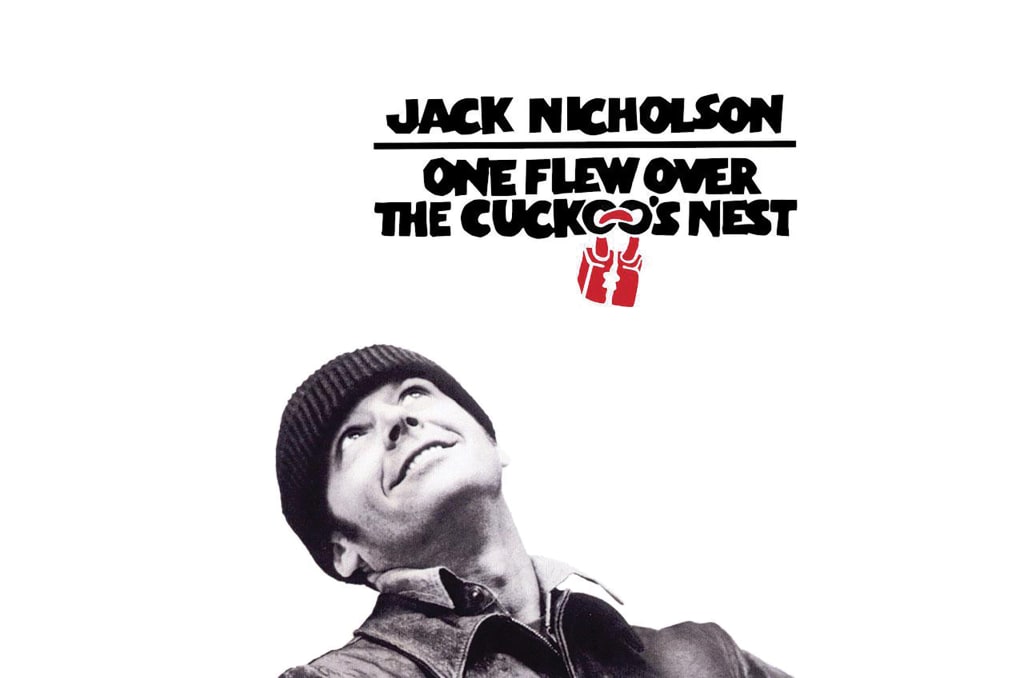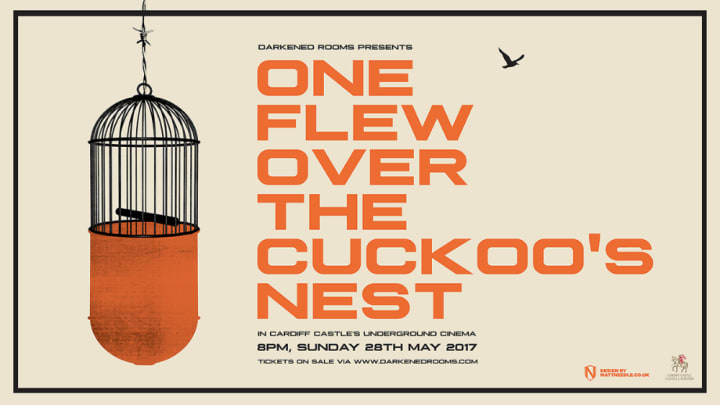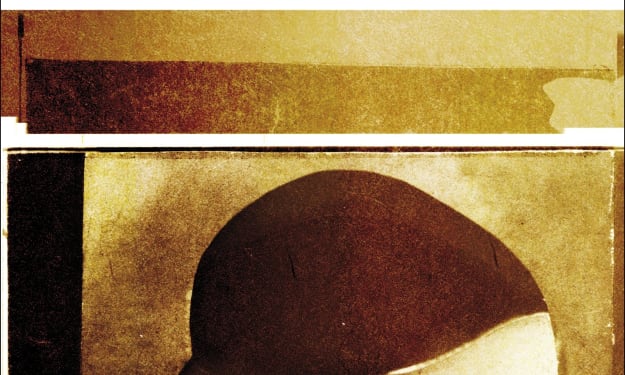One Flew Over the Cuckoo's Nest (1975)
1001 Movies to See Before You Die (Schneider, J.S, Smith, I.H)

In this article, we will be looking at 2019’s book “1001 Movies to See Before You Die” and going through each film in a random order that I have chosen. We will be looking at what constitutes this film to be on the list and whether I think this film deserves to be here at all. I want to make perfectly clear that I won’t be revealing details from this book such as analyses by film reporters who have written about the film in question, so if you want the book itself you’ll have to buy it. But I will be covering the book’s suggestions on which films should be your top priority. I wouldn’t doubt for a second that everyone reading this article has probably watched many of these movies anyway. But we are just here to have a bit of fun. We’re going to not just look at whether it should be on this list but we’re also going to look at why the film has such a legacy at all. Remember, this is the 2019 version of the book and so, films like “Joker” will not be featured in this book and any film that came out in 2020 (and if we get there, in 2021). So strap in and if you have your own suggestions then don’t hesitate to email me using the address in my bio. Let’s get on with it then.
One Flew Over the Cuckoo's Nest (1975) dir. by Milos Forman

Considered one of the greatest films ever made, this film covers key performances of Jack Nicholson and Louise Fletcher who both received wide-spread acclaim and won the Academy Awards for their performances as well. Recently too, there has been a Netflix prequel regarding the character of Nurse Ratchet starring the legendary Sarah Paulson - actress from “American Horror Story” and “Glass”.
Even though it was widely acclaimed, Roger Ebert could not figure out whether it was actually good or just being liked and applauded because of some isolated scenes. I’ll provide a link below so you can read the rest of the article and try and figure out Roger Ebert’s opinion as a whole because I feel like he enjoys it, but he does not think that it was as good as it could have been. Especially regarding the fact he calls some of the stuff ‘sobering’ and ‘pitiful’, so I don’t know really:
“Even as I'm making these observations, though, I can't get out of my mind the tumultuous response that "Cuckoo's Nest" received from its original audiences. Even the most obvious, necessary, and sobering scenes -- as when McMurphy tries to strangle Nurse Ratched to death -- were received, not seriously, but with sophomoric cheers and applause. Maybe that's the way to get the most out of the movie -- see it as a simple-minded antiestablishment parable -- but I hope not. I think there are long stretches of a very good film to be found in the midst of Forman's ultimate failure, and I hope they don't get drowned in the applause for the bad stuff that plays to the galleries.”
Vincent Canby would obviously enjoy this film and honestly, there is some really good content written by him about this film, again I will link the whole article at the end so you can have a look about it. He focuses on the performances and genre and how the story plays into that:
“One Flew Over the Cuckoo's Nest" is at its best when Mr. Forman is exercising his talents as a director of exuberant comedy that challenges preconceived notions of good taste. It's not too far from the mark to describe Randle as a sort of Mister Roberts who finds himself serving aboard the U. S. S. Madhouse. It's to Mr. Forman's credit that the other patients in the ward, though suffering from all sorts of psychoses, are never patronized as freaks but are immediately identifiable as variations on ourselves, should we ever go over the edge of what's called sanity…There are some unsettling things about "One Flew Over the Cuckoo's Nest." I suspect that we are meant to make connections between Randle's confrontation with the oppressive Nurse Ratched and the political turmoil in this country in the 1960's. The connection doesn't work. All it does is conveniently distract us from questioning the accuracy of the film's picture of life in a mental institution where shock treatments are dispensed like aspirins and lobotomies are prescribed as if the mind's frontal lobes were troublesome wisdom teeth…”
The only thing I think Vincent Canby was not very positive on the fact that the concept was way too large to be put in a situation like a mental ward - he thought it reductive and honestly, I can see what he is talking about though I do not agree with him. From the first part of the quotation I shared you can see that it is initially positive but the second part is whole-heartedly more critical and views it as a far-reaching connection between political turmoil and this film’s concept. I don’t know whether Canby is actually reaching quite far himself and that this is not the entire premise for the thematic side of the film.
But critics will be critics.
Citations
About the Creator
Annie Kapur
200K+ Reads on Vocal.
English Lecturer
🎓Literature & Writing (B.A)
🎓Film & Writing (M.A)
🎓Secondary English Education (PgDipEd) (QTS)
📍Birmingham, UK






Comments
There are no comments for this story
Be the first to respond and start the conversation.